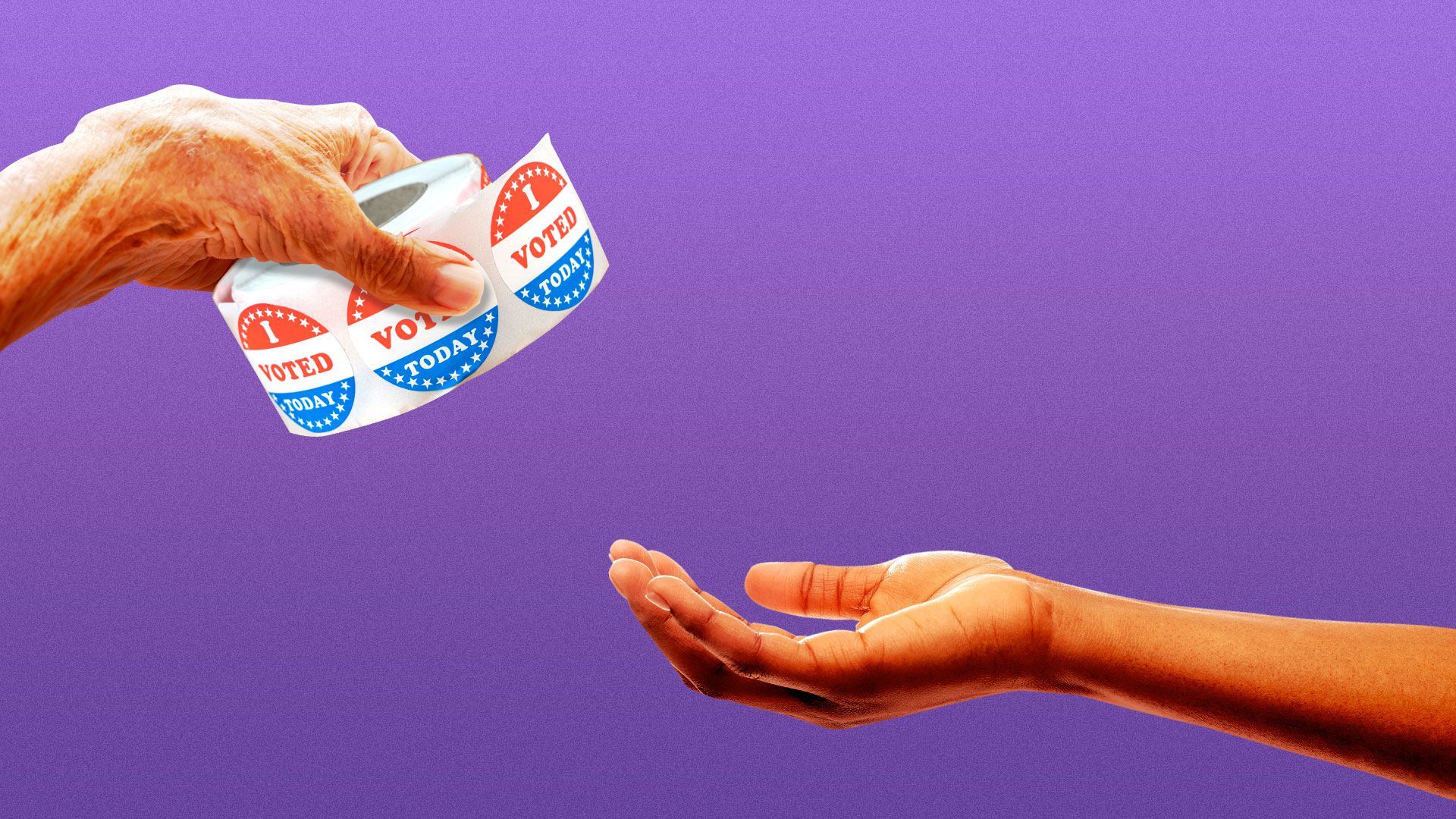Oct 19, 2020 - Politics & Policy
67,000 felons registered to vote after Florida restored their rights
Add Axios as your preferred source to
see more of our stories on Google.

Illustration: Aïda Amer/Axios
Add Axios as your preferred source to
see more of our stories on Google.

Illustration: Aïda Amer/Axios